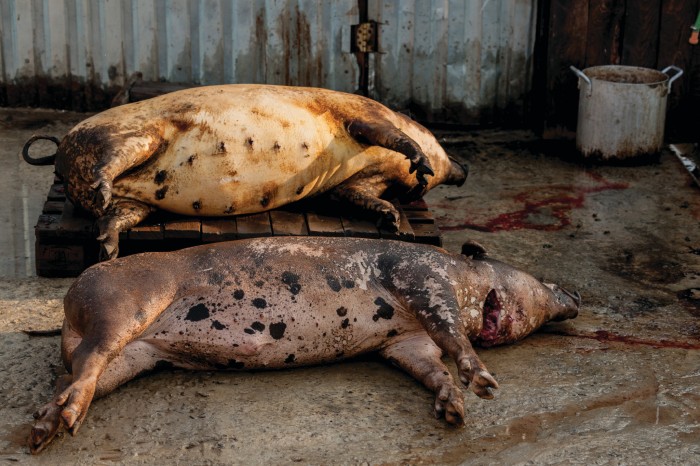The Philippines has become the latest Asian country to be hit by African swine fever (ASF), with with more than 7,000 pigs culled.
According to media reports, hundreds of pigs from various backyard farms died in two towns near the capital, Manila. The virus was first recorded in Rodriguez town, six miles east of Manila. Other undisclosed areas are being closely monitored for possible infection, Agriculture Minister William Dar told the media on Monday.
He said that 14 of the 20 blood samples from the provinces of Rizal and Bulacan, located near the capital, Manila, had tested positive at a UK laboratory. But it would take a week to confirm how virulent the strain is, the Guardian reported.
The authorities have culled more than 7,000 pigs within a one-kilometre (0.6-mile) radius, he said.
Mr Dar said the country was not facing an epidemic and urged Filipinos to continue eating pork, which accounts for 60% of meat consumption in the Philippines.
The Philippines is the world’s eighth biggest pork producer by volume and its swine industry is estimated at 260bn pesos (£4bn), according to the agriculture department.
“We have never been in an epidemic, just to highlight that. We are responding to the increased number of deaths of pigs,” Dar said.
Authorities suspect the swine fever cases stemmed from backyard pig keepers, who feed pigs swill, the Guardian report added. The ministry added the virus could also be traced to smuggled frozen meat and returning overseas Filipino workers who brought back infected meat products.
The virus has spread across China since it was first detected there in August 2018, with pig prices reaching record levels in August on the back of a 30% reduction in the Chinese pig herd.
The virus has also affected Vietnam, where more than 2.6 million pigs have been culled, Mongolia, Cambodia, Laos, Myanmar, Hong Kong and North Korea.




